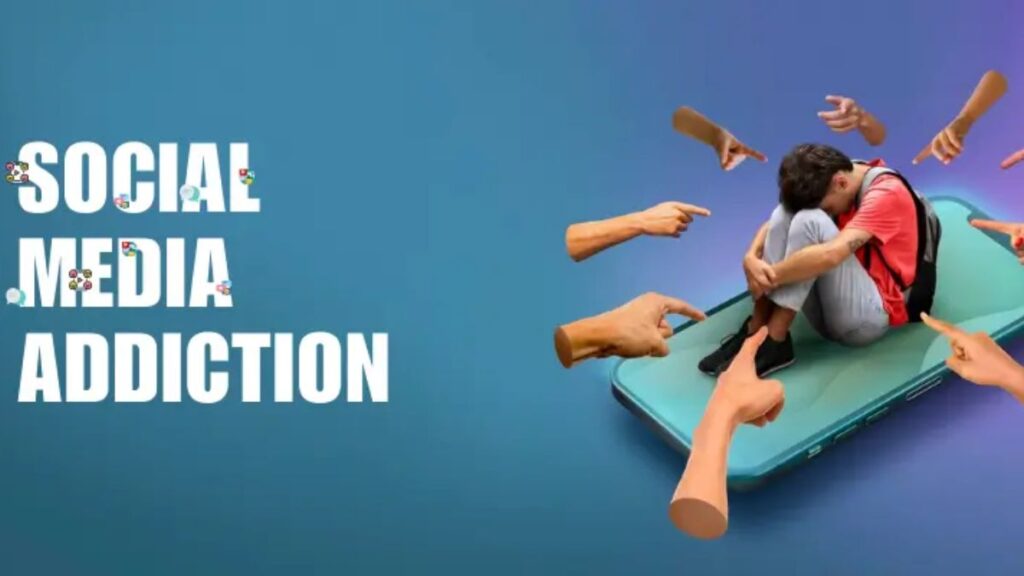In the digital age, social media has become an integral part of daily life, shaping how we communicate, consume content, and engage with the world. While the benefits of staying connected are undeniable, there is a growing concern over the addictive nature of social media. Understanding the science behind social media addiction can shed light on why it’s so compelling and how it affects our brains, emotions, and behaviors. This article delves deep into the neurological, psychological, and societal factors that contribute to social media addiction and offers insight into how we can manage it.
The Neurological Basis of Social Media Addiction
Social media addiction is rooted in the brain’s reward system, which is responsible for processing pleasure, reinforcement, and motivation. Every time we receive a notification or interact with a post, our brain releases dopamine, a neurotransmitter associated with pleasure and reinforcement. This is the same chemical released when we engage in other rewarding behaviors, such as eating food, exercising, or even taking drugs.
When we check social media and receive likes, comments, or new followers, our brain experiences a mini “high,” which reinforces the behavior, making us want to return to the platform again and again. This creates a cycle of reinforcement, where the desire for dopamine outweighs other activities or tasks. Over time, the brain starts to crave these bursts of dopamine, leading to habitual checking and excessive time spent on social media.
Additionally, social media platforms are designed to keep users engaged. Features like infinite scrolling, autoplay videos, and push notifications are intentionally created to trigger our brain’s reward system. This constant stimulation increases the likelihood of becoming addicted, as the brain becomes conditioned to seek out more of these pleasurable experiences. The more time spent on social media, the more difficult it becomes to break free from the cycle, leading to an addiction-like behavior.
Psychological Factors Behind Social Media Addiction
While the neurological aspects of social media addiction are significant, psychological factors also play a crucial role. The desire for social validation is one of the primary psychological drivers behind social media use. People often post content, seek approval, and monitor engagement because they want to feel validated, admired, and accepted. In many cases, the feedback from others (likes, shares, comments) serves as a form of social proof, providing an emotional boost and increasing self-esteem.
For some individuals, the pursuit of social validation becomes obsessive. The fear of missing out (FOMO) also contributes to this psychological cycle. When people see their friends and peers engaging in exciting activities or sharing seemingly perfect moments, it can trigger feelings of inadequacy or jealousy. These emotions drive individuals to check social media more frequently, hoping to catch up or feel connected, further reinforcing the addictive behavior.
Social media can also serve as an escape for those who may be experiencing stress, loneliness, or anxiety. The constant stream of updates and notifications provides a temporary distraction from personal problems, offering a sense of connection or entertainment. However, this escape can be short-lived, and over time, individuals may rely on social media as a coping mechanism, which can exacerbate underlying mental health issues.
The Role of Algorithms in Social Media Addiction
Another contributing factor to social media addiction is the role of algorithms. Platforms like Facebook, Instagram, and TikTok use sophisticated algorithms to determine what content is shown to users. These algorithms are designed to optimize engagement, keeping users on the platform for as long as possible. They achieve this by analyzing user behavior and preferences to deliver content that is most likely to generate interest, likes, and comments.
As users interact with the platform, the algorithm continuously learns from their behavior, providing an increasingly personalized experience. This can create a feedback loop, where users are constantly fed content that aligns with their interests, making it harder to look away. The more relevant and engaging the content, the more likely users are to spend extended periods scrolling through their feeds. Additionally, the unpredictability of the content (such as surprise posts or unexpected updates) keeps users on edge, heightening the addictive nature of the platform.
While algorithms may enhance user experience by providing personalized content, they also contribute to information overload. The constant bombardment of new posts, advertisements, and updates can lead to cognitive fatigue, making it difficult to disconnect or focus on other tasks. The design of these platforms makes it challenging for individuals to stop engaging, even if they consciously try to reduce their usage.
The Impact of Social Media Addiction on Mental Health
Social media addiction can have profound effects on mental health. One of the most significant impacts is its connection to anxiety and depression. Studies have shown that excessive social media use can increase feelings of loneliness, inadequacy, and social comparison. When individuals constantly compare their lives to the curated images of others on social media, it can lead to lower self-esteem and negative body image.
Moreover, the constant need for validation and approval can contribute to anxiety. Users often find themselves worrying about the number of likes or comments they receive, or the perception of their online persona. This constant monitoring of social media can increase stress levels, making it difficult to focus on real-life interactions and responsibilities. The fear of not being perceived in a certain way online can also contribute to mental health issues, such as social anxiety and low self-worth.
Sleep disturbances are another common consequence of social media addiction. Many people find themselves scrolling through social media late into the night, often at the expense of sleep. The blue light emitted from screens can interfere with the production of melatonin, the hormone responsible for regulating sleep patterns. This leads to poor sleep quality, which in turn exacerbates anxiety, depression, and cognitive function.
Societal and Behavioral Consequences of Social Media Addiction
Beyond the individual level, social media addiction can also have broader societal and behavioral consequences. On a societal level, the overuse of social media has led to a decline in face-to-face interactions. People may prioritize virtual connections over in-person relationships, leading to feelings of isolation and disconnection. This shift in social behavior can affect friendships, family dynamics, and even workplace productivity.
Moreover, social media addiction has been linked to a decrease in attention span and the ability to focus on tasks. The constant need for stimulation and instant gratification can reduce an individual’s capacity to concentrate on more demanding tasks, such as reading, studying, or working. This can be particularly problematic in academic and professional settings, where sustained focus is often required for success.
Another significant consequence is the spread of misinformation. As people spend more time on social media, they are more likely to encounter misleading or false information. Algorithms tend to prioritize content that generates the most engagement, regardless of its truthfulness. This can contribute to the spread of rumors, conspiracy theories, and harmful content, which can have far-reaching effects on society.
Managing and Overcoming Social Media Addiction
Recognizing the signs of social media addiction is the first step toward managing it. If you find yourself spending excessive amounts of time on social media, neglecting other responsibilities, or feeling anxious about your online presence, it may be time to reassess your usage.
There are several strategies to help break the cycle of social media addiction. One effective method is setting boundaries, such as limiting the time spent on social media each day or using apps that track and restrict usage. You can also try turning off non-essential notifications to reduce distractions and the temptation to check your phone constantly.
Another approach is to engage in offline activities that provide a sense of fulfillment and connection, such as exercising, reading, or spending time with loved ones. By prioritizing these activities, you can reduce the emotional reliance on social media for validation and entertainment.
Lastly, practicing mindfulness can help individuals become more aware of their social media habits and the emotions they experience while using it. Techniques like meditation and journaling can help process feelings of anxiety, loneliness, or inadequacy that may arise from social media use, allowing individuals to develop a healthier relationship with these platforms.
Conclusion
Social media addiction is a complex issue that involves a combination of neurological, psychological, and societal factors. The constant release of dopamine, the pursuit of social validation, and the role of algorithms all contribute to the addictive nature of social media. While it offers many benefits, such as staying connected and informed, it is crucial to recognize its potential negative effects on mental health, relationships, and overall well-being. By understanding the science behind social media addiction, we can take steps to manage our usage and create a healthier balance between our online and offline lives.



